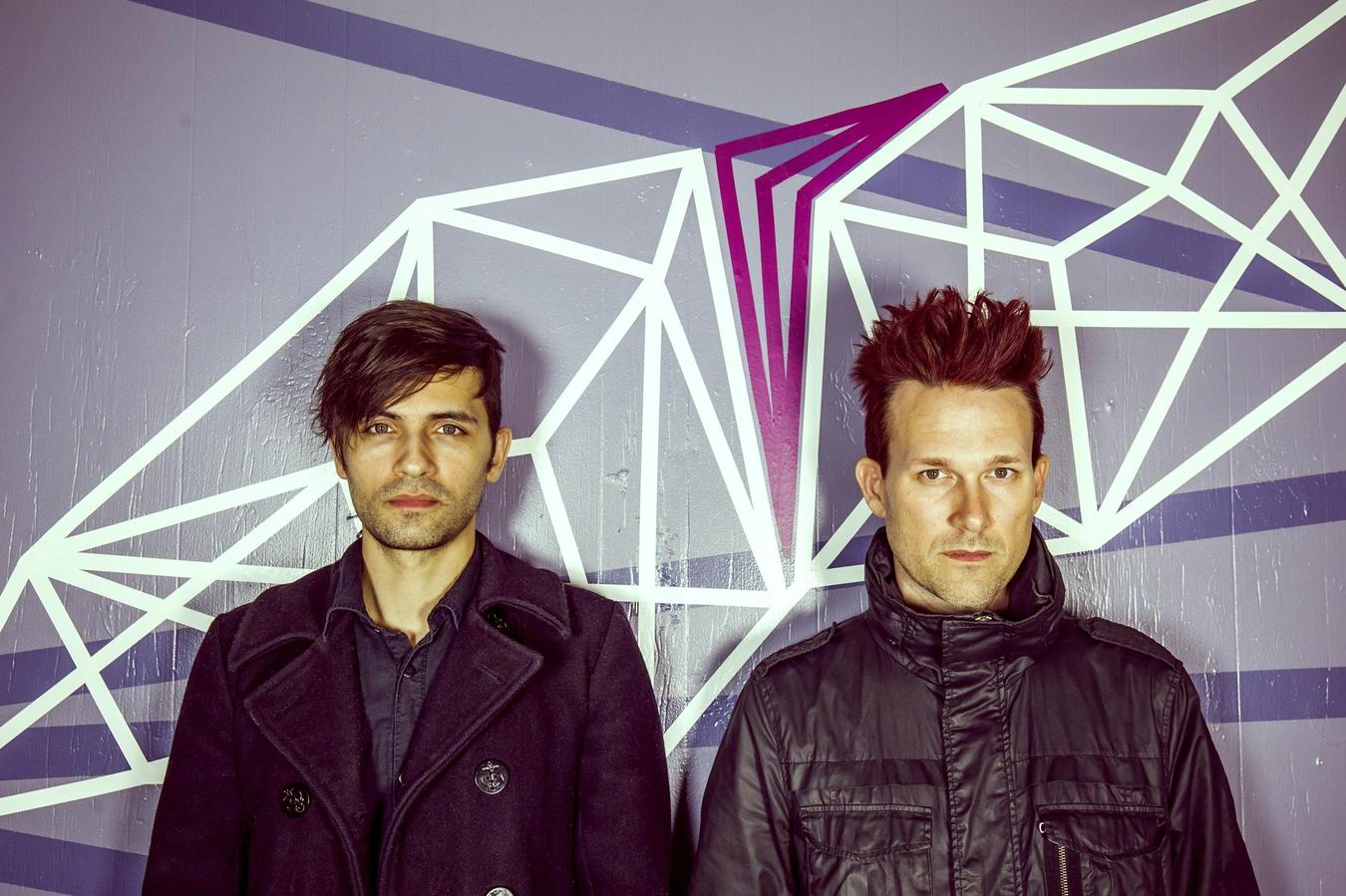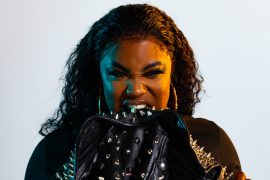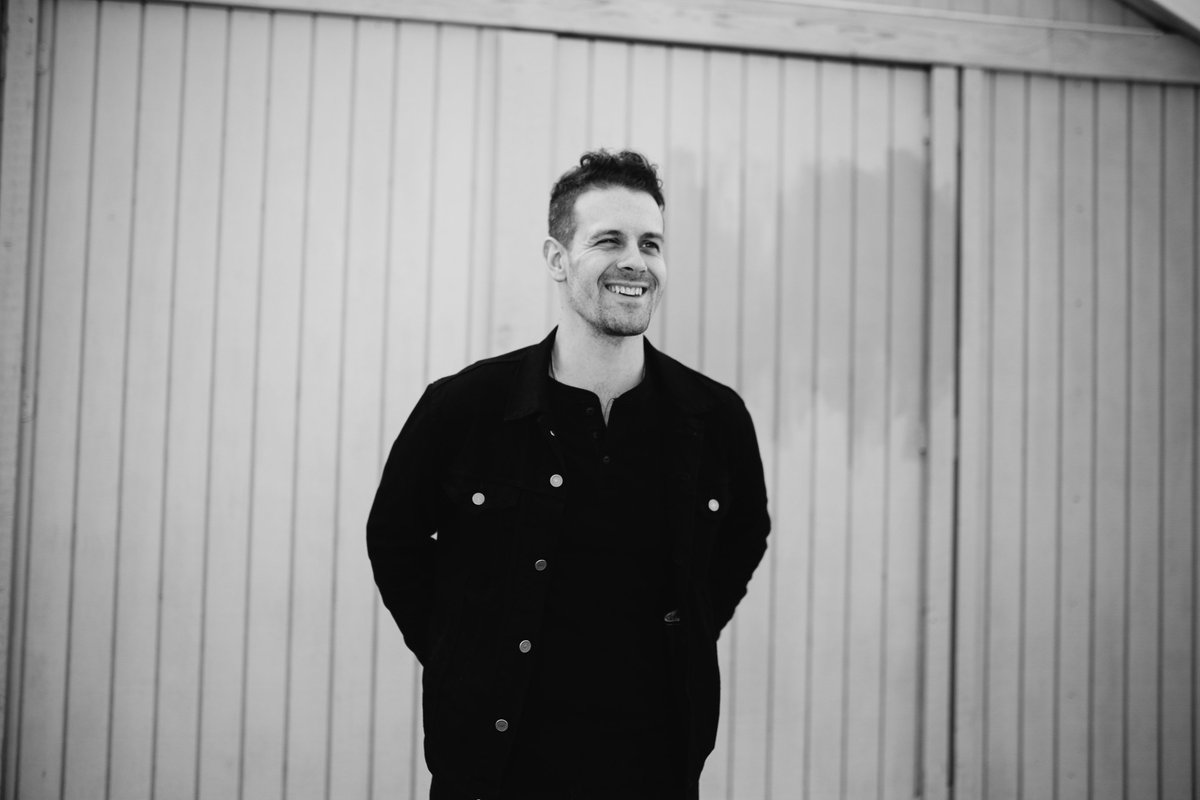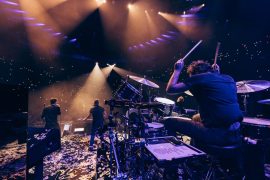In an ever-changing musical landscape that constantly finds artists trying to “reinvent” themselves, Texas-based synth duo Night Drive are confident that they know themselves well, and that they know not to get overwhelmed by the little things.
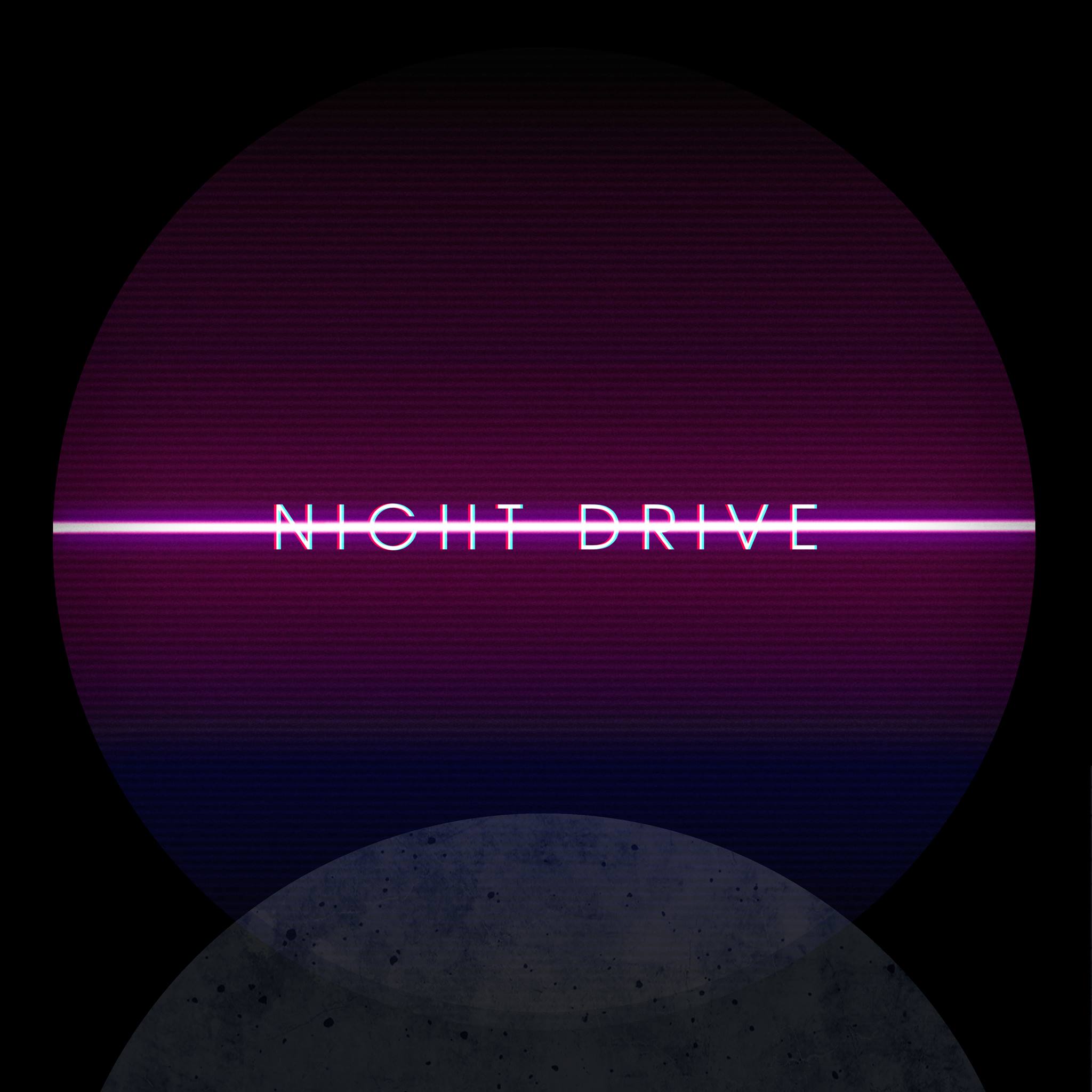
“You know, sometimes it’s really easy — and I think that goes for life in general — to get caught up in the immediate issues, and not focus on the bigger picture of what you’re trying to do and create,” Night Drive’s Rodney Connell elucidates.
Night Drive offer an intriguing, nuanced sound seldom found in today’s music world. The duo hearken back to a variety of influences, yet somehow consistently maintain an edge that takes listeners on a synesthetic sonic joyride. They are simultaneously old and new, and both sides feel equally as good.
A few months ago, Atwood Magazine was able to catch up with Night Drive at a free show in Austin, TX, one of their home bases. Since our chat, the duo has subsequently released their debut full-length to generally positive critical and fan response. The self-titled LP soars with its cognizant lyricism and spacey electro-beats, uniquely carving out a space that Night Drive can call all their own.
Listen: “Drones” – Night Drive
[soundcloud url=”https://api.soundcloud.com/tracks/95534134″ params=”color=ff5500&auto_play=false&hide_related=false&show_comments=true&show_user=true&show_reposts=false&visual=true” width=”100%” height=”150″ iframe=”true” /]A CONVERSATION WITH NIGHT DRIVE
Atwood Magazine: So you’re based here in Austin, and in Houston as well. Where do you tend to spend most of your time, and why have you decided to stay in Texas rather than go to any other part of the country?
Rodney Connell: Well, I think the short answer for that is that it’s worked. It’s worked that we can stay, and we both do a lot of other art, and have other parts of our lives in both cities. So, it tends to be easier. I mean, just the fact that it did work that we’re in separate cities, which we thought was a huge obstacle and was not going to work —
Aren’t they like, two hours away from each other?
Rodney: About two and a half, three hours, yeah. But yeah, I mean, in the future, who knows what’ll happen. But as it stands, we have a studio in Houston, and we have a studio here in Austin, and so where we spend more time? I don’t really know the answer to that. I mean, it depends on what’s going on. Some months, I’m in Houston a lot.
Brandon Duhon: It depends if you’re talking about a studio or a show. We play a lot more shows here, but we spend a lot more time in the studio, which is Houston.
What are the music scenes like, comparably?
Rodney: Well, Austin’s is just bigger; there’s just more. Houston has a smaller scene, and it’s not as propped up as much by the city; it doesn’t have as much of a foundation. You know, Austin is the live music capital of the world, and the city, through the years, has really had to stand by that, and not just allow it to just be a slogan that they make money off of. They’ve actually had to back that up. So, Austin’s scene is a lot bigger and a lot more sufficient, you know? Whereas Houston is spotty, but that’s kind of cool too, because it’s a little grittier.
It’s a little more DIY! So your sound, I kind of liken it to 80s synth rock/pop - Depeche Mode was the first thing that I thought of when I heard you. What got you interested in doing the style of music that you do now?
Rodney: Well, as far as like, electronic sort of synth pop stuff, I don’t know — there’s a lot of it that we like. From when we started in 2013, to what was going on in the 2000s; there’s so much of that. People tend to call it “80s music” because they don’t know what else to call it.
As a general umbrella term, of course.
Rodney: Yeah, so we were just listening to a lot of the same contemporary music, and then, you know, of course, a lot of that has a history and a past and is derivative of something. Of course, we like all of those old bands. I think that the main thing is that Brandon and I, we like different stuff, but we also have a huge crossover of stuff that we do like, and [what] we both wanted to do in that crossover. And I think it’s good to both kind of be on the same page and stuff.
Is there any sort of inspiration that you have that might be surprising, considering the type of music that you make?
Rodney: I don’t know; I guess it depends on your audience.
Brandon: I like a lot of classical; classical piano, and stuff like that.
That’s cool!
Rodney: I mean, we could say like, Philip Glass, but then to some people that wouldn’t be incredibly surprising, you know? Or Scott Walker; things like that.
Well, what’s your guilty pleasure?
Rodney: Guilty pleasure? Hmm. Brandon, what’s your guilty pleasure?
Brandon: My guilty pleasure is Enya. I love Enya.
Nice! That’s great; that’s amazing!
Brandon: If this band doesn’t work out, I’m going to apply to be her butler at her castle. She lives in a castle.
What? Really? Where?
Brandon: I don’t know, somewhere in Europe, where people just live in castles.
I want to just color it in the right way so that the listener can kind of make their own story within it, and not hold their hand through it so much.
Right, on the reg. It’s fine. So, your songs to tend more of a narrative story, or at least from what I’ve noticed while listening to you guys. Do you tend to go into your songwriting process with a set goal in mind, or is it just kind of a go-with-the-flow type of thing?
Rodney: I think lyrically, once we start the process of writing the lyrics to the song — I don’t know. I try not to be too direct with the lyrics. And honestly, I think there’s a couple songs that I feel like people think it’s about a romantic relationship, and really I try to keep a lot of the lyrics vague enough where it could be about a friendship, or a partnership, or just anything. Or it could have double meaning, you know?
Is there any song in particular that has a double meaning, or a hidden meaning?
Rodney: Well, my point is that I want to just color it in the right way so that the listener can kind of make their own story within it, and not hold their hand through it so much.
Right, just kind of attach their own meaning to it.
Rodney: Exactly.
Listen: “Rise and Fall” – Night Drive
[soundcloud url=”https://api.soundcloud.com/tracks/293434916″ params=”color=ff5500&auto_play=false&hide_related=false&show_comments=true&show_user=true&show_reposts=false&visual=true” width=”100%” height=”150″ iframe=”true” /]
Cool. And it’s just the two of you?
Rodney: We have a drummer, he also lives in Houston.
Did you start as your duo?
Rodney: Yeah, we played for a couple years just the two of us, and one day he just sent us a YouTube video of him playing drums to all of our tracks; he had them like, memorized.
Oh, that’s awesome!
Brandon: Yeah, and we were already starting to play festivals, and stuff, and we were like, it’d be great to have a live drummer. We were already thinking about that, so it was pretty serendipitous, really.
What’s the best show you’ve ever played? Or festival?
Rodney: Ooh, I don’t know.
Brandon: I liked ACL [Austin City Limits].
Rodney: That’s one of my favorites too. But we had a lot of fun at shows out on the road; we had a really fun show early on, with Tesla Boy, at The Rickshaw Stop in San Francisco. That was a really fun one. We’ve actually been really lucky; we kind of like to pride ourselves on being a live show. We want it to be inclusive, and we want people to be dancing.
So why does music matter to you guys? What made you want to be musicians?
Brandon: It was an accident for me. I went to school for painting and illustration, and that’s what I wanted to do. After I got out of school, I was at a party with a drum kit, and I just started playing drums, and I definitely just accidentally fell into it. And, yeah, I realized I liked making music more than I liked painting and drawing.
Do you still do it?
Brandon: I still do it every once in awhile, yeah. I do a lot of the artwork for the album covers and stuff like that.
Nice. How about you?
Rodney: I don’t know, I just think it’s so universal, you know? Music just means a lot to me, and has always meant so much to me, and so I just wanted to be a part of it, and tell stories, and create emotions. I think from an early age, I was always just crazy about music, you know?
Cool! Then I guess to wrap up, what do you think the best piece of advice you’ve received has been? You’ve been making music since 2013, you’ve been continuing with it now for four years.
Rodney: Part of it is just being resilient.
Brandon: Not letting small setbacks discourage you, because it’s sort of like, in that moment, it seems kind of not so good, but then if you let it discourage you, it turns into a bigger thing when actually in hindsight it’s like, oh, that wasn’t actually a big deal.
Rodney: Right, and stay focused on the bigger picture. You know, sometimes it’s really easy — and I think that goes for life in general — to get caught up in the immediate issues, and not focus on the bigger picture of what you’re trying to do and create.
— — — —

